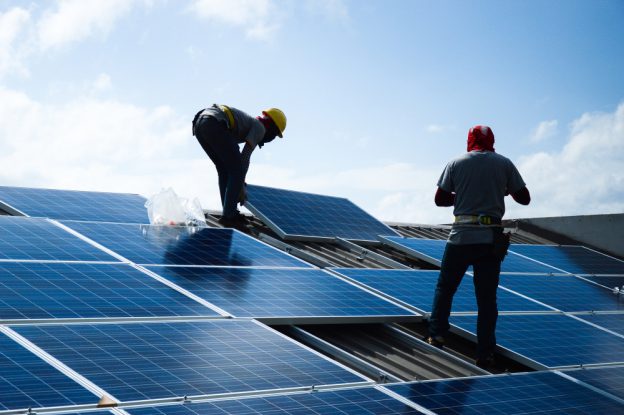The Complete Guide to Solar Energy Installment: Conserve Money and Go Green
Checking out the subtleties of solar power installation exposes a complex strategy to both cost savings and environmental duty. House owners are increasingly considering solar energy not just as a viable alternative however as a strategic financial investment that can produce significant long-term benefits. The procedure includes cautious consideration of different elements, including system selection and installment treatments. Recognizing these aspects is vital for maximizing performance and financial savings. What certain steps should one take to ensure an effective shift to solar power, and how can economic motivations additionally enhance this endeavor?
Benefits of Solar Power
The growing fostering of solar energy shows a significant shift toward sustainability and ecological obligation. Among the main benefits of solar energy is its ability to reduce dependence on fossil fuels, causing decreased greenhouse gas exhausts. By utilizing the sunlight's power, individuals and businesses can add to a cleaner setting and alleviate the adverse impacts of environment change.
Additionally, solar energy can lead to substantial monetary cost savings. Once set up, photovoltaic panels substantially reduced electrical power expenses, as they produce energy from an eco-friendly resource. Many governments additionally supply incentives, refunds, and tax obligation credit histories to urge solar adoption, additionally boosting financial viability.
One more significant benefit is power self-reliance. Solar energy systems enable home owners and businesses to produce their own electrical energy, minimizing vulnerability to rising and fall power rates and supply disruptions. Additionally, solar energy systems require very little maintenance, equating to reduced long-lasting operational costs.
Choosing the Right Solar System

Solar systems differ significantly in price depending on their type, size, and efficiency. Take into consideration potential financing choices such as finances, leases, or power acquisition agreements (PPAs) that may reduce ahead of time costs.
Available space is another vital aspect. Examine your roof covering's alignment, angle, and shading, as these components can affect photovoltaic panel effectiveness. If roofing area is restricted or inappropriate, ground-mounted systems may be a practical alternative.
It's essential to perform comprehensive research study to understand the specific incentives readily available in your location, as they can vary widely. Consulting with a solar installation specialist can assist you browse these alternatives successfully, ensuring you maximize your financial savings while adding to a more lasting power future.
Preserving Your Solar System
Reliable upkeep is vital for guaranteeing the longevity and optimum performance of your solar energy system. Routine upkeep can aid stop minor concerns from intensifying into expensive repair work and make certain optimal energy effectiveness.
Start with regular examinations of your photovoltaic panels, ideally every 6 months. Search for dust, debris, or any kind of indications of wear and tear. best solar energy company in fort lauderdale. Cleaning up the panels, particularly in locations susceptible to dirt or bird droppings, can considerably boost energy manufacturing. Use a soft brush and moderate cleaning agent to prevent harming the surface area.
Following, monitor the inverter. This element transforms solar power into useful electrical energy and should be inspected monthly. The majority of modern inverters have keeping track of systems that signal you to performance issues, permitting prompt intervention.
Furthermore, you could look here evaluate the wiring and connections for any type of indications of deterioration or damages, as these can lead to decreased effectiveness or system failing. Take into consideration professional maintenance services yearly for a detailed exam.
Verdict
Financial incentives and routine maintenance better contribute to the long-term benefits of solar energy. Inevitably, welcoming solar modern technology represents a vital step toward sustainability and power independence, promoting a greener future for all.